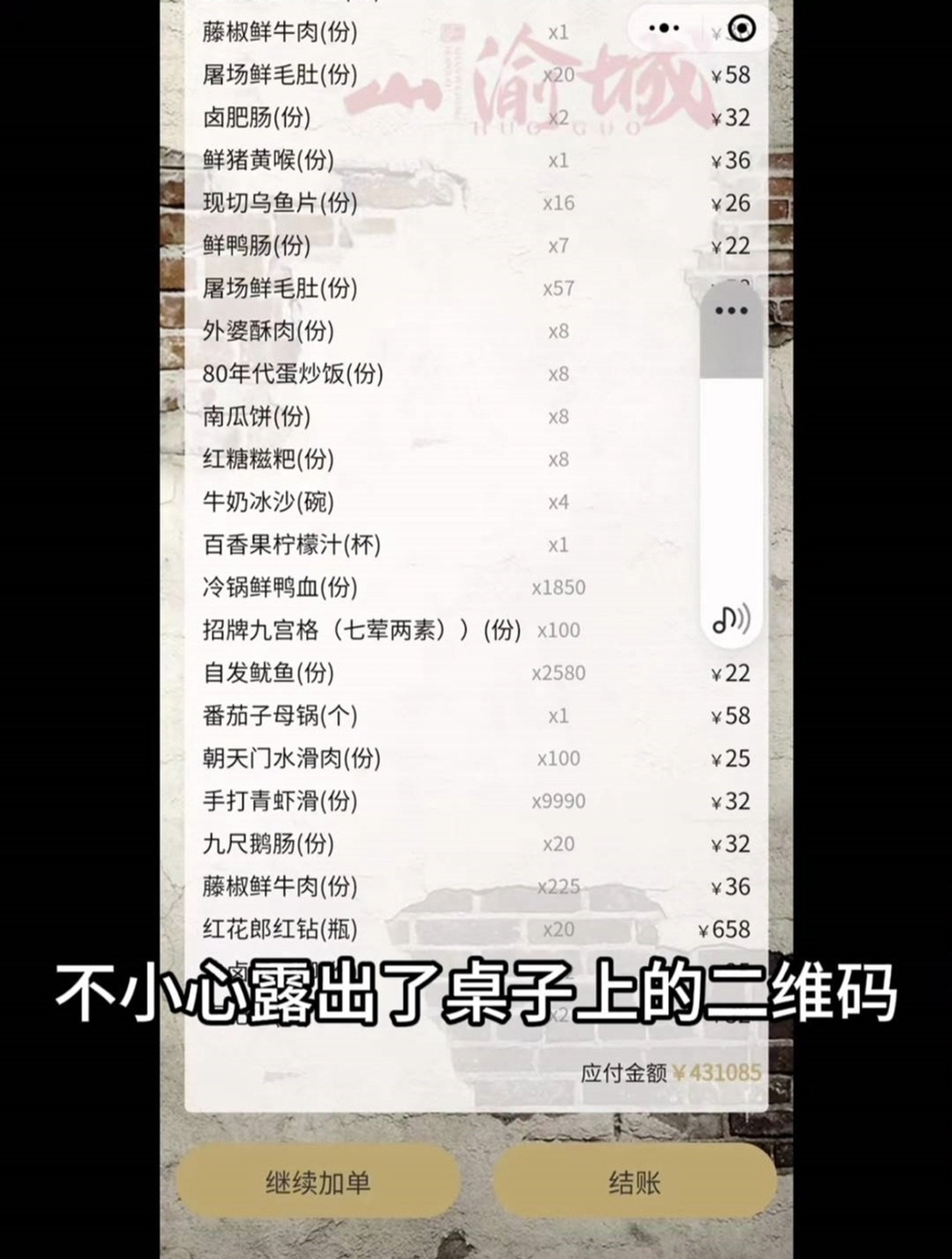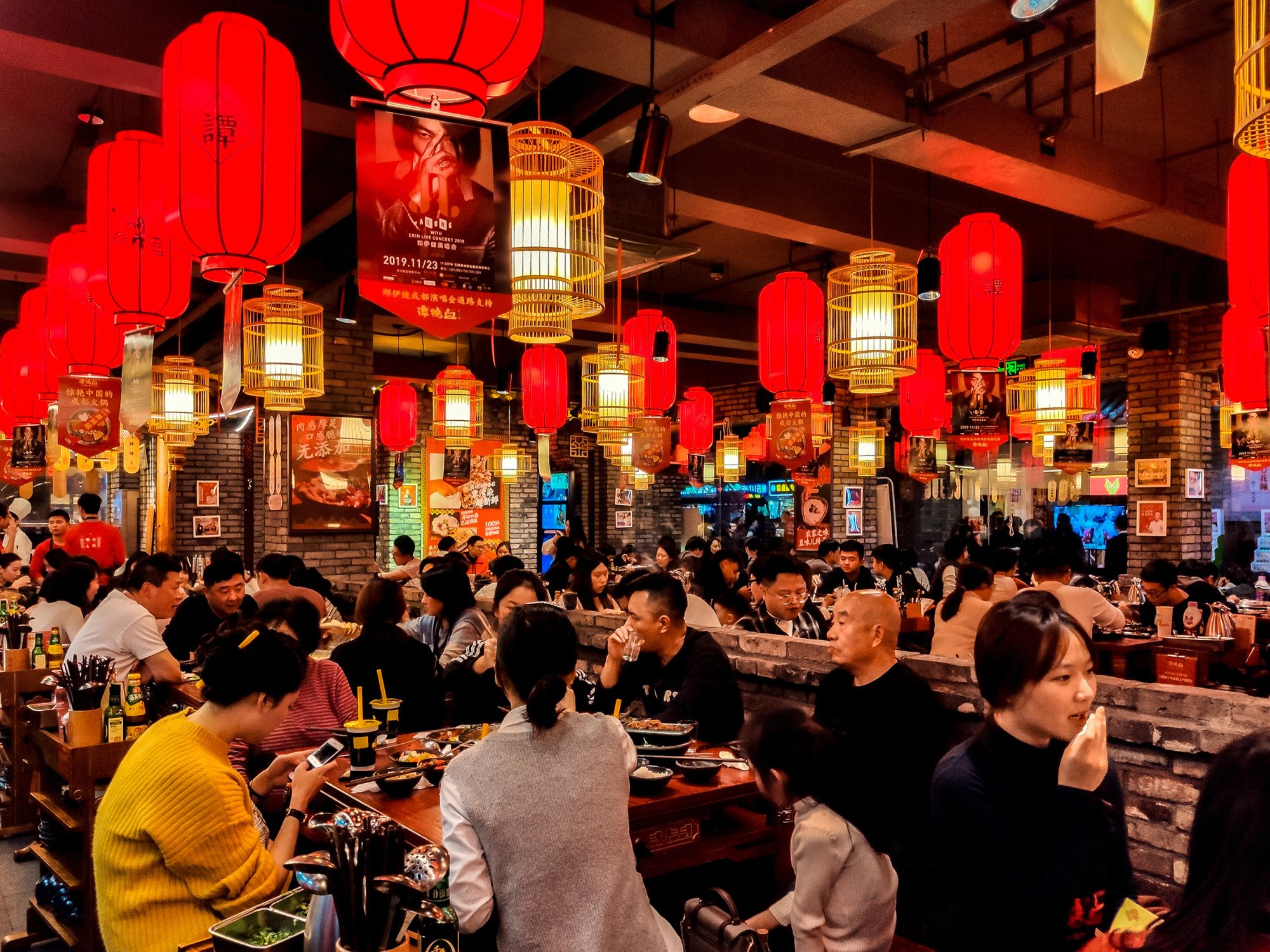Woman posts innocent photos of eatery’s dishes online, landed with huge bill. Other diners piggyback on her table’s QR code for orders when it appeared in photos of food. — SCMP
A woman in China was shocked to receive a 430,000 yuan (RM280,462 or US$60,000) bill at a restaurant after accidentally posting the QR code for ordering food online, which others used to place food orders.
The woman, surnamed Wang, said she only wanted to post photos of the dishes from a hotpot restaurant she visited with her friend on Nov 23, but she accidentally included a QR code that was stuck to the table for ordering and paying for meals.
While she only posted the photos on her restricted viewing WeChat Moments page, which can only be seen by her contacts in WeChat, that list included a large number of people who began to scan the code.
When restaurant staff came to confirm her table’s 430,000 yuan (RM280,462) order, Wang discovered that people had used the QR code she accidentally posted.

Wang deleted her post immediately, but people kept making new orders to their table. She assumed someone had downloaded her photo and continued making orders using the code.
According to a screenshot of the order Wang later posted online, people ordered 1,850 portions of fresh duck blood, 2,580 portions of squid and 9,990 portions of shrimp paste, each priced at a few dozen yuan (a few US dollars).
The restaurant did not make Wang pay the bill and moved her to a new table, ignoring all the new orders made via the code.
The management said it could neither track down the people who ordered the food nor stop people from continuing to do so.
Wang said it was a learning experience and called for increased awareness of information security so people are more careful sharing pictures of their food.
Lin Xiaoming, lawyer from Sichuan Yishang Law Firm, told the mainland media outlet Fengmian News that the fake orders were not Wang’s original intention, making them invalid.

He said restaurants involved in similar cases could cancel the order and demand compensation from the people who made the fake orders if they caused financial loss.
Lin also suggested restaurant ordering system designers add a confirmation mechanism to the ordering procedure to prevent the problem in the future.
Many on social media felt for Wang’s predicament, with one person pointing out that restaurant QR codes carry “some risk despite their convenience”. – South China Morning Post





